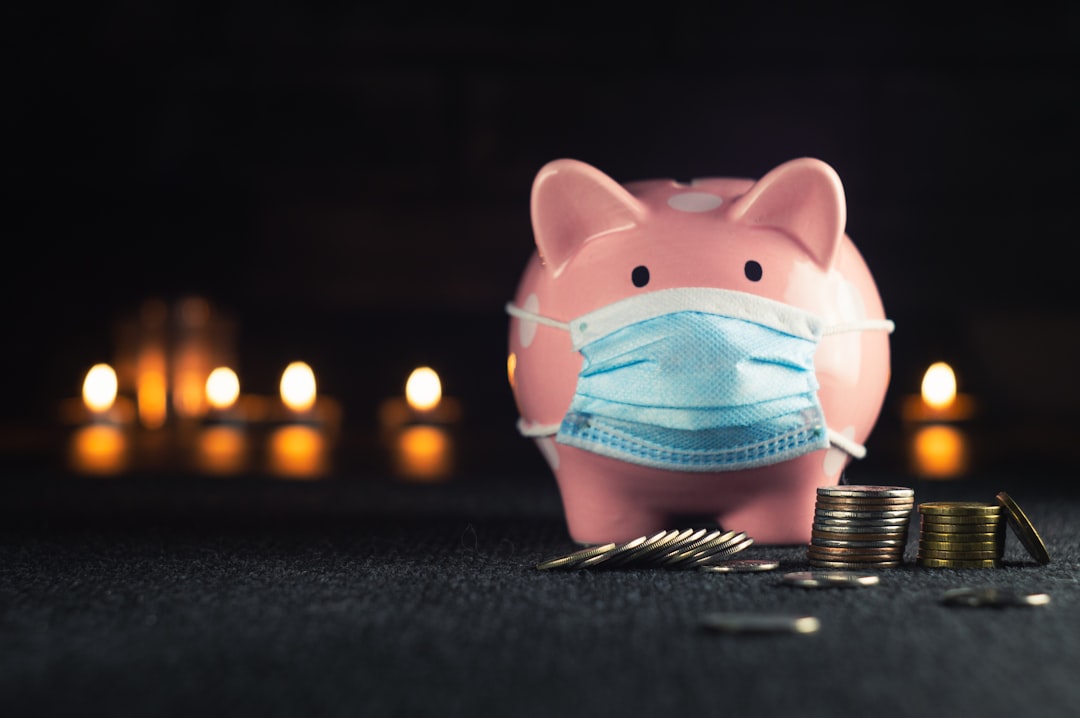Debt can easily become a vicious cycle that we can quickly fall into. The ease of obtaining credit cards and loans makes it tempting to live beyond our means. However, the consequences of excessive debt can be overwhelming and can cause significant financial and emotional stress. Debt can lead to a ruined credit score, increased interest rates, and even bankruptcy. On the other hand, achieving financial freedom frees us from the burden of debt and provides immense benefits.
In this blog post, we will discuss the dangers of debt, how to assess your financial situation, and practical steps to take towards financial freedom. We will also discuss the benefits of saving and the tips to pay down debt quickly. Lastly, we will examine the importance of maintaining financial discipline and staying on track towards achieving financial freedom.
Whether you are currently in debt or just starting your financial journey, the insight provided in this post will equip you with the tools needed to break free from debt and attain financial freedom once and for all!
Assessing Your Debt: Understanding Your Financial Situation
Before you can start tackling your debt, you need to understand your financial situation. This means taking a deep dive into your finances and assessing your debt, income, expenses, and assets.
The first step is to gather all of your financial statements, including credit card bills, loan statements, and other debt obligations. This will give you a clear picture of how much debt you have, who you owe money to, and the interest rates you are being charged.
Next, you need to calculate your monthly income and expenses to determine how much money you have coming in and going out each month. This will help you identify areas where you can cut back on spending and free up more money to put towards your debt.
Once you have a clear understanding of your debt and financial situation, it’s time to start prioritizing. You will need to develop a plan to pay off your debts in a way that makes sense for your unique financial circumstances.
Some experts recommend prioritizing your debts by interest rate, tackling the ones with the highest interest rates first to save money in the long run. Others suggest starting with the smallest debt balance first to gain momentum and motivation in your debt payment journey.
Regardless of which approach you choose, it’s important to stay committed to paying off your debts and not adding any new debt to your plate. This will require discipline and sacrifice, but the long-term benefits of debt freedom are well worth the effort.
Remember, assessing your debt and understanding your financial situation is the first step towards achieving financial freedom. With a clear picture of your finances and a well-thought-out plan, you can take control of your debt and build a brighter financial future for yourself.
You will need to develop a plan to pay off your debts in a way that makes sense for your unique financial circumstances.
Creating a Budget: Practical Steps to Getting Out of Debt
One of the most practical steps you can take towards achieving financial freedom is to create a budget. A budget helps you assign a specific amount of money to your expenses, making it easier to track where your money goes and to identify areas for potential savings. Here are some tips for creating a budget that will help you get out of debt.
Step 1: Determine Your Income
The first step in creating a budget is to determine how much money you have coming in each month. This includes your salary or wages, as well as any additional sources of income you may have, such as investments or side hustles.
Step 2: Identify Your Expenses
Next, you’ll want to identify all of the expenses you have each month. This includes your rent or mortgage, utilities, groceries, transportation costs, and any other bills you may have. We recommend starting with fixed expenses, like rent and insurance, and then moving on to variable expenses, like groceries and entertainment.
Step 3: Set Priorities
After you’ve identified your expenses, it’s time to prioritize them. Start with the essentials, such as food, shelter, and transportation. Then, move on to other expenses, like entertainment and dining out. You may find that you need to make some tough choices when it comes to cutting expenses, but remember that prioritizing your spending is essential to getting out of debt.
Step 4: Set Financial Goals
With your income and expenses in mind, it’s time to set some financial goals. These goals will give you something to work towards and help keep you motivated. You may want to set a goal for paying off a specific debt or saving a certain amount of money each month. Whatever your goals are, make sure they are specific, measurable, and achievable.
Step 5: Stick to Your Budget
Creating a budget is only the first step towards financial freedom. The most important part is sticking to your budget. This means making sure you don’t overspend in any category and adjusting your spending as needed to stay on track. It can be helpful to check in on your budget weekly or monthly to make sure you’re staying on track towards your financial goals.
By following these practical steps and creating a budget, you’ll be well on your way towards achieving financial freedom and getting out of debt. Remember, the key is to prioritize your spending and stick to your budget. With dedication and discipline, you can achieve the financial future you’ve always dreamed of.
Then, move on to other expenses, like entertainment and dining out.
Savings Strategies: Techniques for Building Wealth
One of the most important steps towards achieving financial freedom is saving money. Saving allows you to build wealth over time while also providing a safety net in case of emergencies. However, saving money is easier said than done, especially when you are in debt. But don’t worry, there are many strategies and techniques that you can use to build your savings even while paying off debt.
The first step towards building your savings is to set a savings goal. This goal should be specific, measurable, and achievable. It could be as simple as saving $50 per month or as complex as saving $20,000 in the next five years. Whatever your goal may be, it should be realistic and within your means.
Once you have set your savings goal, the next step is to automate your savings. This means set up automatic transfers from your checking account to your savings account, so that you don’t have to remember to do it yourself. This will help you stick to your savings goal and make it a habit.
Another effective savings strategy is to cut back on unnecessary expenses. This means taking a hard look at your budget and eliminating any non-essential purchases. For example, you could eat out less often, cancel your subscription services, or switch to a more affordable cell phone plan.
If you’re looking for more advanced savings strategies, consider opening a 401(k) or IRA account. These retirement accounts not only help you save for your future but also offer tax benefits. Additionally, you can invest your savings in stocks, bonds, or mutual funds to increase your potential returns.
One final tip for saving money is to take advantage of cashback programs and rewards programs. Many credit cards offer cashback rewards for certain purchases, and some retailers offer loyalty programs that reward you for your purchases. By taking advantage of these programs, you can earn money back on purchases you would already be making anyways.
Building savings takes time and effort, but it’s an essential step towards achieving financial freedom. By setting a savings goal, automating your savings, cutting back on unnecessary expenses, investing in retirement accounts, and taking advantage of cashback programs, you can build your savings even while paying off debt.
If you’re looking for more advanced savings strategies, consider opening a 401(k) or IRA account.
Debt Reduction Tactics: Tips for Paying Down Debt Quickly
When it comes to getting out of debt, there is no silver bullet solution. However, there are numerous tactics and strategies that you can use to pay down your debt quickly and efficiently. The key is to develop a plan that works for your financial situation and stick to it until you achieve financial freedom.
1. Pay More Than the Minimum Due:
The minimum payment due on a credit card is typically just enough to cover the interest and keep the account in good standing. However, if you only pay the minimum, you will be making payments for years and years, and you may end up paying more than double the original amount due to the compounding effects of interest. Instead, aim to pay more than the minimum due every month, even if it’s just a little extra. This will help you make progress towards paying down your debt and help you save money in the long run.
2. Take Advantage of Balance Transfers:
If you have multiple credit card balances, taking advantage of balance transfer offers can be an effective way to consolidate your debt and save on interest charges. Many credit cards offer promotional balance transfer rates as low as 0% for a specified period of time. If you are able to transfer high-interest debt to a 0% interest card, you can save a significant amount of money on interest charges.
3. Consider Debt Consolidation Loans:
If your credit score is good enough, consider taking out a personal loan to consolidate your debt. Debt consolidation loans allow you to combine all your debts into one monthly payment with a lower interest rate than your credit cards.
4. Negotiate with Credit Card Companies:
Another tactic to consider is negotiating with your credit card companies directly. If you are struggling to make payments, they may be willing to work with you to come up with a payment plan or offer a reduced settlement amount.
5. Utilize the Debt Avalanche Method:
The debt avalanche method is a debt reduction strategy that involves paying off debts with the highest interest rates first. By tackling the high-interest debt first, you will save money on interest charges and make quicker progress towards becoming debt-free.
Ultimately, the key to paying down debt quickly is to develop a plan and stick to it. Whether you choose to pay more than the minimum due, take advantage of balance transfer offers, or negotiate with credit card companies, the goal is to make progress towards financial freedom. With discipline and dedication, you can achieve your goal of living a debt-free life.
However, if you only pay the minimum, you will be making payments for years and years, and you may end up paying more than double the original amount due to the compounding effects of interest.
Staying on Track: The Importance of Maintaining Financial Discipline
Congratulations! You’ve made progress by assessing your debt, creating a budget, implementing savings strategies, and utilizing debt reduction tactics. But, attaining financial freedom is not a one-time achievement. It is an ongoing process that requires consistent financial discipline.
In this section, we will explore the importance of maintaining financial discipline and the best practices to stay on track towards achieving financial freedom.
First, you must understand that every financial decision you make has dire consequences. Living beyond your means, impulse buying, and taking on unnecessary debt are some of the ways that may derail your progress towards financial freedom. Therefore, staying on track entails making sound decisions consistently.
One critical aspect of staying on track is adhering to the budget. Your budget helps control your expenses and provides a roadmap for achieving your financial goals. Always track your expenses against your budget and identify areas that require adjustment.
Another important practice is creating an emergency fund. Emergencies can quickly derail your progress towards financial freedom because you will require money that is not part of your budget. Aim to have at least three to six months of living expenses set aside in an emergency fund.
It is also crucial to resist the temptation of splurging when you get a windfall. An unexpected bonus, inheritance, or tax refund may seem like an opportunity to make a big purchase or take a luxurious vacation. However, playing the long game and putting the money towards your financial goals will benefit you in the long run.
Furthermore, your financial discipline will be tested when you encounter setbacks such as a job loss, illness, or divorce. During these times, try to prioritize your financial goals and adjust the budget accordingly. Don’t be afraid to ask for help from a financial advisor or a trusted friend or family member.
Finally, celebrating small financial milestones along the way keeps you motivated to stay on track. For instance, reaching a debt-free milestone or meeting your savings goal for the month could warrant a small but meaningful celebration.
In conclusion, maintaining financial discipline is a necessary component of achieving and sustaining financial freedom. Staying on track requires making sound decisions consistently, adhering to your budget, creating an emergency fund, avoiding splurging, prioritizing your financial goals during setbacks, and celebrating small victories along the way.
It is an ongoing process that requires consistent financial discipline.
Achieving Financial Freedom: Celebrating Success and Moving Forward
Congratulations! You’ve made it to the end of this blog post, and you’re now armed with practical tips and techniques for achieving financial freedom.
It’s important to celebrate the small successes along the way. Every time you pay off a debt, stick to your budget, or save a little more money, give yourself a pat on the back. Recognizing your achievements will help you stay motivated and focused on your end goal.
But financial freedom isn’t just about paying off debt and building wealth. It’s also about making conscious decisions about how you spend your money and aligning your values with your financial goals. It’s about feeling in control of your finances and being able to live a life that aligns with your values and priorities.
As you move forward on your journey to financial freedom, remember to stay committed to your goals and to make adjustments as needed. You may encounter setbacks along the way, but don’t let them discourage you. Instead, see them as opportunities to learn and grow.
Finally, don’t forget to celebrate your achievements along the way. Whether it’s treating yourself to a small indulgence or simply taking a moment to reflect on all the progress you’ve made, celebrate your journey to financial freedom and all the hard work and dedication it took to get there.
Remember, achieving financial freedom is a journey, not a destination. So keep moving forward, stay committed to your goals, and celebrate every success along the way.





